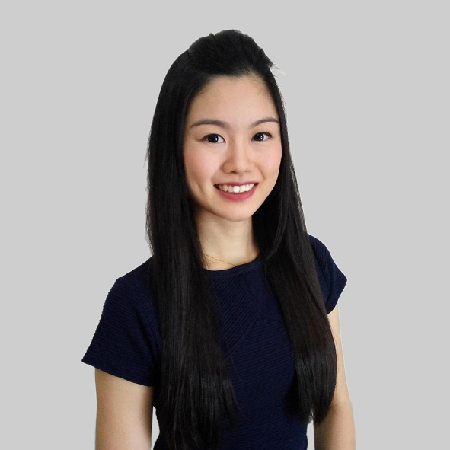Never a dull moment in Clarissa's classes

From a Taekwondo black belt to an early childhood tutor, Ms Clarissa is highly-recommended by her students’ parents. Ms Clarissa has been a full-time tutor for 6 years and has taught Preschoolers, as young as 3 years old, up to Lower Secondary students.
Having a nurturing personality, she aims to help her students to excel at their own pace through understanding and fun learning.
In this interview, we will find out more on what she thinks about educating preschool kids and her thoughts on early age enrichment classes.

When did you start early childhood teaching? How old are these students that you teach?
Ms Clarissa: It all started when I was 16. As a black belt holder in taekwondo then, I was learning and helping my coach to teach at the community club in my area. It was then that parents started asking if I could tutor their young children during my free time.
Since then, I have been referred by parents to their friends/family and that was how it all started. I have taught students from the ages of 3 to 15 years old.
Can you share more about your experience so far, on working with young children?
Ms Clarissa: I have learnt throughout my years as a tutor that no single day at work is the same because young children can be very unpredictable. There are days where they can be excited for lessons and there are times where they’ll much rather be doing something else.
In addition, most children expect you to know exactly what they are talking about and have answers to all the questions that they have. As such, it is good to be up to date with the “current affairs” of their age group such as the “in” games, songs and cartoons to bridge any communication gap.
Also be prepared to look up the internet and learn a lot of random knowledge so as to be able to cater to their questions. Above all, patience, a friendly and calm demeanour coupled with enthusiasm while working with children are, in my opinion, the most essential skills to have when tutoring young children.
What kind of activities do you usually do with young children, and what are the learning objectives for such activities?
Ms Clarissa: When it comes to young children, lessons often involve but not limited to, a mixture of storytelling, games, songs and role playing. I have come to realise over the years that consistent reading helps in improving a child’s concentration ability. It also allows them to get to know sounds, words and develop early literacy skills.
“The game of concentration” and “Simon says” are two of the many games that I enjoy playing with young children. These games encourage children to listen attentively while keeping the lessons fun. You can easily change the rules of the game or add in different elements to cater to the subjects you are teaching. At times, songs are incorporated into language/phonetics lessons to help them learn how to pronounce, spell, write and memorise words in a fun way.
Role playing is another important aspect of the lesson. This not only allows them to improve in their language and communication skills, it also allows them to develop thinking, learning and problem-solving abilities.
What are your thoughts on starting enrichment classes at an early age?
Ms Clarissa: Starting enrichment classes at a young age opens up the opportunity for children to be more well prepared and confident before moving on to the next stage of their academic life. As enrichment classes can be made fun, young children become more engaged in their learning and retain more information. This also allows them to develop a love for learning at a young age.
How do you measure progress/improvements for such young children?
Ms Clarissa: This depends on the age of the child as their developmental milestones varies with age. In general, I would measure the progress and improvement of a young child by their language skills, fine motor skills e.g. drawing a circle with a pencil, penmanship, the ability to focus in class and their problem-solving skills.
If a student is active, how do you tailor the lessons to suit such children?
Ms Clarissa: There is no “one method fits all” when it comes to young active children. When speaking to active children, I like to keep my sentences short and simple. The lesson will be tailored to ensure they stay engaged.
I often use a combination of methods such as short periods of alternated focused work and active play. Incorporating interactive games that would pique their interest and allowing them to work in a different part of the room usually helps. For e.g. if they would like to sit on the floor and use a chair as a table, I’m down for it. Breaking down tasks into smaller parts also help active children stay focused.
* Interview edited for brevity and clarity
Related to: For Parents Preschool Tutor Spotlight


